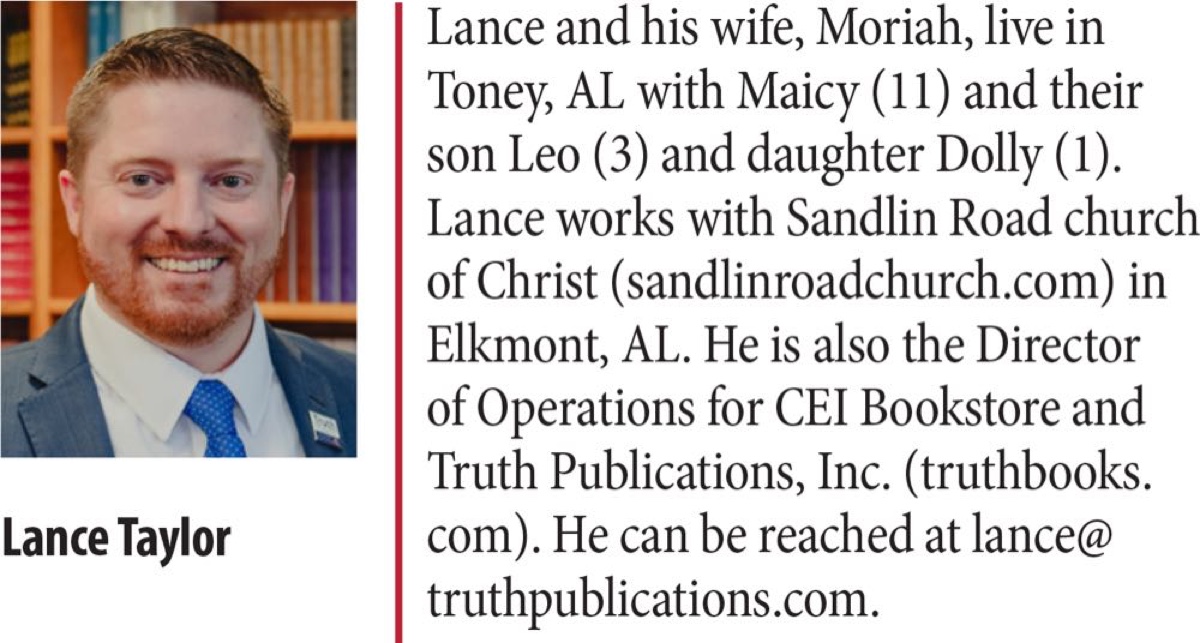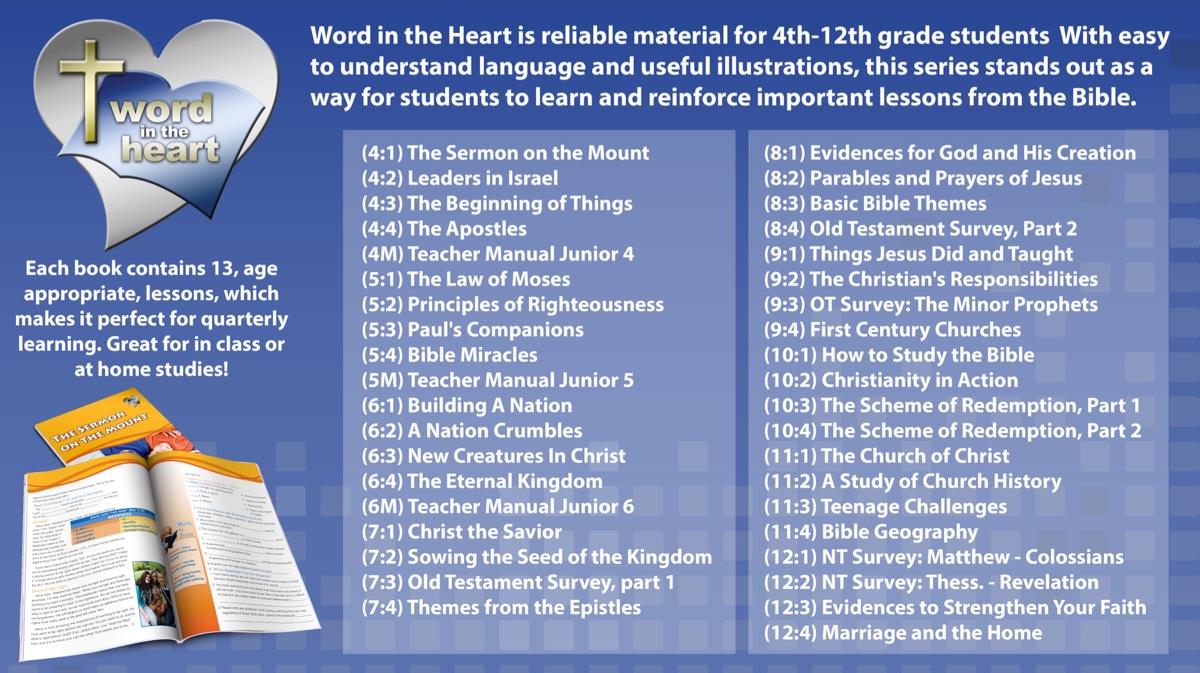by Lance R. Taylor
Synopsis: An exercise of examining the ways of the world as opposites of the right behavior expected of Christians in Romans 12 to reveal the depth of our individual spirituality and faith.
Have you ever studied Romans 12 and realized that the behaviors commanded to us are not so natural? We certainly strive to learn and model the commands given here and throughout the Scriptures, but a careful examination reveals that, left to our own inclinations, we often struggle to do the righteousness of God on our own, by nature, if you will, or by selfish choice, or by following influences in this world.
The very beginning of Romans 12 expresses that struggle with the admonition in verse 2:
Do not be conformed to this world, but be transformed by the renewing of your mind, that you may prove what is that good and acceptable and perfect will of God (NKJV).
Conforming to the world is the easy choice from day to day. We can see ways to blend in with everyone in everything in this life. Whether it be at our job, in school, in our homes, in our marriage, in our friendships, in our hobbies, and even in our local congregation. The easy way in many (if not most) cases would be to go along with popular opinion and blend in with the surrounding world.
Being transformed—that is, choosing to practice the righteous will of God from day to day is truly the narrow way, the difficult path. Presenting your body as a living sacrifice is never easy. The first verse has Paul beseeching (urging) us to give ourselves to God, in His service, as “a living sacrifice, holy, acceptable to God.” By coming to God this way, we are seeking to please Him, not ourselves, and certainly not the world. It truly is a life-changing choice when our mind is set on being “acceptable to God” instead of pursuing acceptance in this world.
With that foundation in mind, I would like to give attention to the specific admonitions in verses 9-21 and note the often natural (worldly) opposites of each.
Verse 9 admonishes us to “Let love be without hypocrisy.” The worldly way entices us to be hypocritical with our love. To love our closest family and friends more than anyone else, to show favoritism to those we love the most, to prefer to love those who love us in return. In many moments, each of us may naturally even feel a real familial instinct to love our own family (spouse, child, parent) in a very special “mother bear” or “papa bear” way. The choice, then, must be made to follow the righteous will of God and love others without hypocrisy. God is the ultimate example of such complete love.
The text continues, saying, “Abhor what is evil. Cling to what is good.” This seems like an obvious choice, but upon examination of our world and the actions often taken, we will realize that it is not so obvious after all. Every day, we must choose between the good and the bad. The failures of us all reveal that we are imperfect in choosing correctly many times. The evil we see and experience each day around us in this world also reveals that this is not such an obvious choice for mankind. Even in our innocent childhood, it seems we often attempt to “toe the line” of right and wrong. Have you ever seen a small child seemingly “testing” the line with his parents? If we look in the mirror closely, then we may find that we far too often test the line as God’s children. The admonition here is to draw a hard line and always choose good over evil.
Now, having established the approach to understanding the challenge of each admonition by seeing the opposite (often natural) worldly actions, let us look more briefly at verses 10-21, focusing on the worldly way that we must reject.
Verse 10 says, “Be kindly affectionate to one another with brotherly love, in honor giving preference to one another.” The worldly way would entice us to be selective about our love and give preference to ourself.
Verse 11 exhorts believers to “not [be] lagging in diligence, [but] fervent in spirit, serving the Lord.” The worldly way would entice us to be lazy, give up, do things that serve ourselves, and be fervent in the things that make us the happiest.
Verse 12 says that the redeemed are those who should be “rejoicing in hope, patient in tribulation, continuing steadfastly in prayer.” The worldly way would have us fearful of lost hope, impatient in any struggle, seeking an immediate cure for our pain, and even give up on faith in God or prayer when in such trials.
Verse 13 declares that we should be actively “distributing to the needs of the saints, [and be] given to hospitality.” The worldly way is enticing us more and more to be isolated from one another and look out for our own well-being and interests before anything or anyone else.
Verse 14 encourages believers to “bless those who persecute you; bless and do not curse.” The way of the world is an eye for an eye and tooth for a tooth. The need to retaliate and get even prevails and is promoted in this world.
Verse 15 reminds us to “rejoice with those who rejoice, and weep with those who weep.” The way of the world harbors jealousy and resentment toward the success of others. The worldly would rather find a place to enjoy pleasure instead of going to the side of those who are experiencing sorrow.
Verse 16 commands, “Be of the same mind toward one another. Do not set your mind on high things, but associate with the humble. Do not be wise in your own opinion.” The worldly way elevates self, is mindful of self-first, and is always looking for the next great thing for self. The high things of this world are related to wealth, possessions, fame, and pleasures. Personal intelligence and standing vs. others is constantly measured, pursued, and awarded in the world.
Verse 17 warns, “Repay no one evil for evil. Have regard for good things in the sight of all men.” The worldly way is to get revenge, and to have regard for the things that matter to our peers in order to gain acceptance and favor. This means that we are tempted to desire revenge, even in thoughts, if not in action, and be tempted to lower our standards in order to fit in with others.
Verse 18 pleads, “If it is possible, as much as depends on you, live peaceably with all men.” The world is a place of unrest and warring among people constantly. The world would entice us to join the battles, join the divisions, and stake a place of our own in the continual debates. A little extra note here: I am saddened to see so-called Christians take to social media in ways that stoke fires of division and do not promote peace.
Verse 19 exhorts, “Beloved, do not avenge yourselves, but rather give place to wrath; for it is written, ‘Vengeance in Mine, I will repay,’ says the Lord.” The world encourages us to avenge ourselves and not to take wrongdoing passively. There is an ongoing battle between the avengers and the offenders in this world. On which side are we to be as Christians? Neither. God alone is the righteous Judge worthy of exacting vengeance.
Verse 20 counsels, “Therefore, if your enemy is hungry, feed him; If he is thirsty, give him a drink; For in so doing you will heap coals of fire on his head.” The worldly way is to either avoid or attack the enemy. Doing good to an enemy is not typical in this world. Christians should stand out to an obvious extent!
Verse 21 concludes, “Do not be overcome by evil, but overcome evil with good.” The worldly way will lead to a life full of evil thoughts and deeds, but a life submitting to the will of God will pursue good, as defined by God, and overcome the evil of this world. The world frequently promotes evil for evil, or perhaps justice for evil, but rarely returning good for evil.
This exercise of examining the ways of the world as opposites of the right behavior of Christians may seem to be very elementary. However, the depth of our individual spirituality and faith is largely revealed when our thoughts, intents, and actions are compared to both sides (good and evil) of the teachings in Romans 12. May God give us the faith and strength to be transformed according to His will—His word!
Scriptures are referenced/quoted from The New King James Version (NKJV). Nashville: Thomas Nelson, 1982.


